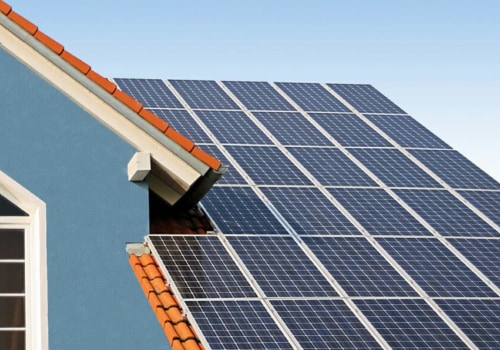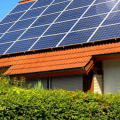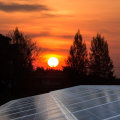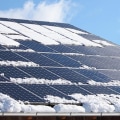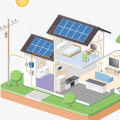As solar power continues to gain popularity as an alternative energy source, there are still many myths and misconceptions surrounding its use. In this article, we'll explore and debunk some of the most common myths surrounding solar power to provide readers with a better understanding of the true potential and advantages of this renewable energy source.
Solar power is too expensive
One of the most common myths surrounding solar power is that it is too expensive for the average homeowner. While it is true that the initial cost of installing a solar power system can be high, the long-term savings on energy bills can more than offset those costs. Additionally, there are a number of government incentives and tax credits available for homeowners who install solar power systems, making them more affordable than ever.
Solar power only works in sunny climates
While it is true that solar power systems work best in sunny climates, they can still generate electricity on cloudy or overcast days. In fact, some of the most successful solar power projects are located in areas with relatively low levels of sunshine, such as Germany and the UK. Additionally, advances in technology have made solar power systems more efficient, allowing them to generate electricity even in low-light conditions.
Solar power is unreliable
Another common myth surrounding solar power is that it is unreliable, particularly during periods of
inclement weather. While it is true that solar power systems may generate less electricity on cloudy days, they can still produce a significant amount of energy. Additionally, many solar power systems are connected to the grid, allowing homeowners to draw electricity from the grid when their solar panels are not generating enough power.
Solar power is difficult to maintain
Some people believe that solar power systems require a significant amount of maintenance, which can make them difficult and expensive to maintain. In reality, however, solar power systems require very little maintenance beyond periodic cleaning and inspections. Most solar panels are designed to last for at least 25 years, and many come with warranties that cover any maintenance or repair costs.
Solar power is not efficient enough
Some people believe that solar power is not efficient enough to meet their energy needs. However, advances in technology have made solar power systems more efficient than ever, and many homeowners are able to meet all of their energy needs with solar power alone. Additionally, many solar power systems are connected to the grid, allowing homeowners to draw electricity from the grid when their solar panels are not generating enough power.
Solar power is not aesthetically pleasing
Some homeowners may be hesitant to install solar power systems because they believe that they are not aesthetically pleasing. However, many modern solar panels are designed to blend in with the roof of your home, making them virtually invisible from the ground. Additionally, some homeowners choose to install ground-mounted solar panels or solar tiles, which can add to the aesthetic appeal of their home.
Solar power is not reliable enough for off-grid living
While it is true that solar power systems may not be reliable enough to meet all of the energy needs of off-grid living, they can still be a valuable source of energy for those living off the grid. In fact, many people who live off the grid rely on solar power as their primary source of electricity. Additionally, advances in technology have made it possible to store solar energy in batteries, allowing homeowners to use solar power even when the sun is not shining.


